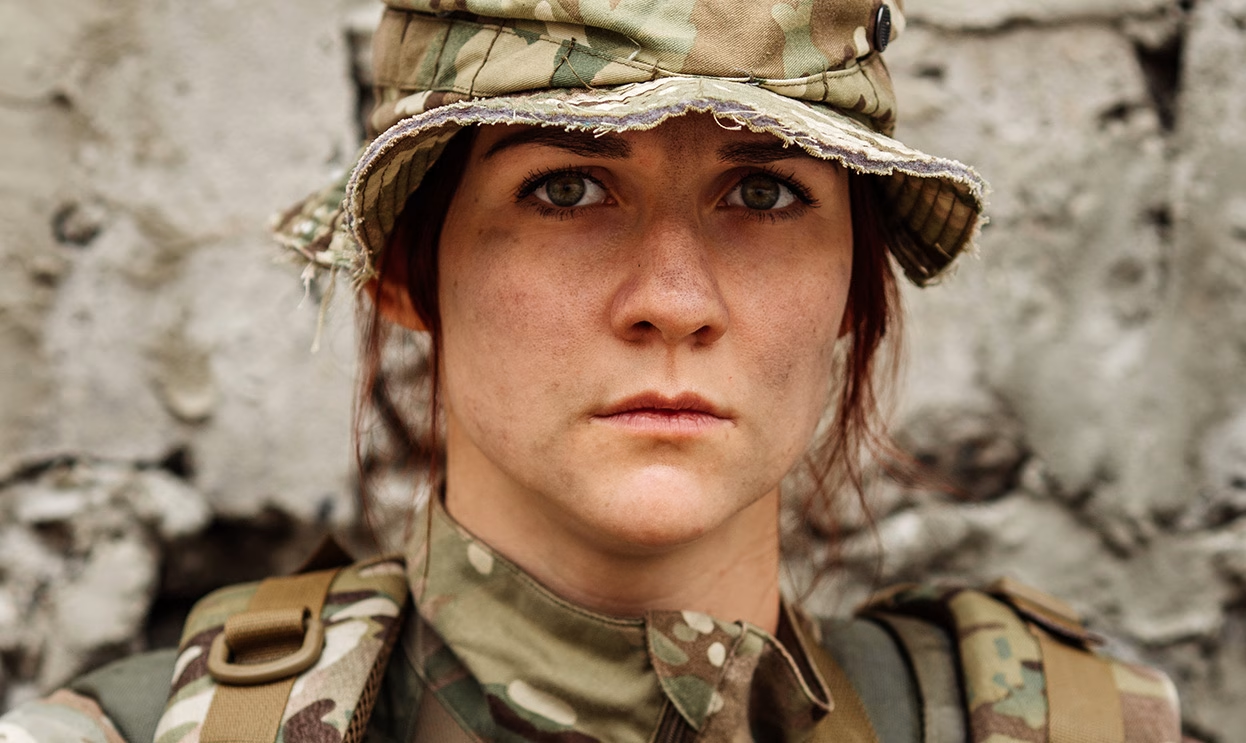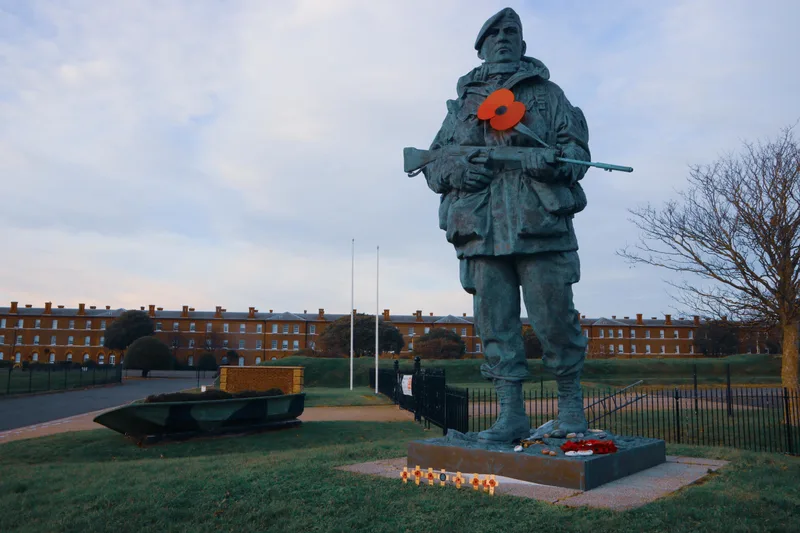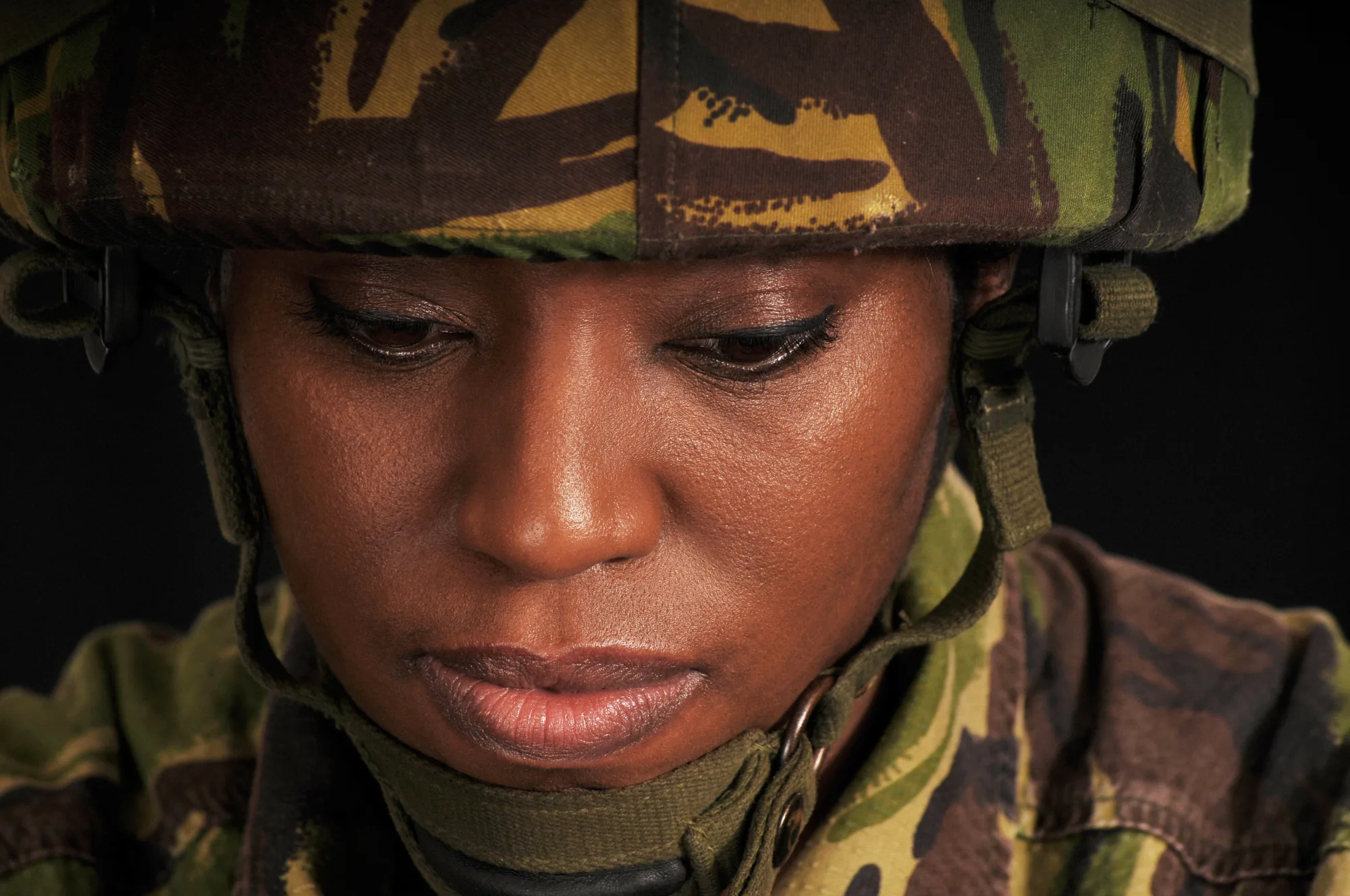The Armed Forces Community is unique, and service life brings with it a number of challenges. This can make it harder for people to ask for help when they are experiencing domestic abuse, sexual violence or stalking. It might mean they don’t talk about their experiences at all.
At Aurora, we recognise that service life is different, and that people in the forces community can be worried about the consequences of speaking out about these issues. We have designed our Armed Forces support service with this in mind.
Our specialist team understand service life, and how difficult it can be to talk about what is happening. Domestic abuse, sexual violence and stalking is never ok: we want to make sure that those with links to the armed forces get support that has been designed especially for them.
Get Support Now
Contact our specialist team for support that is independent and confidential

NEW – Aurora Armed Forces Helpline
Helpline & WhatsApp: +44 (0)333 0912 527
A helpline for Royal Navy, British Army, and Royal Air Force personnel and their family members who are victims and survivors of Domestic Abuse, Sexual Violence or Stalking.
Independent, confidential, and free. For all UK forces personnel and their families including those deployed abroad.
Helpline hours (GMT): 0900-1500 Monday to Friday
WhatsApp chat (GMT): Monday 0900-1500 / Wednesday & Thursday 1700-2000 / Sunday 1000-1400

What support does Aurora provide to the Armed Forces community?
Our specialist Armed Forces Team offers support to any serving member of the Royal Navy or British Army who is experiencing domestic abuse, sexual violence or stalking. We also support family members experiencing these issues.
We provide a variety of services, including:
- One to one support and advocacy, including support through the Service or Criminal Justice System
- Group work recovery programmes designed specifically for victims and survivors from the forces community
- A helpline offering initial advice, support and signposting
Our services are available to women and men aged 16 and over, regardless of where they are based (UK or overseas.)
Our work prioritises safety and wellbeing, and is client-centred. That means we work with people based on what they want to do, and we will not put pressure on them to take a particular course of action if they are not ready. We provide support regardless of whether the abuse has been reported to the police.
Please note: Due to funding restrictions we regret that we are not currently able to support RAF personnel or their family members in our one to one casework or group work programmes. Our helpline is open to all.

Aurora’s Experience and Expertise
Although completely independent, we have built strong relationships with the Army and Royal Navy, and we work closely with them to ensure that victims and survivors receive the support that they need. As part of our work we deliver training to forces personnel on a regular basis and provide individual case consultancy and guidance on request.
Our staff have extensive experience in domestic abuse, sexual violence and stalking and hold relevant practice accreditations. A number have forces connections or service experience, because it is important to us that our team reflects the community that we support. Victims and survivors tell us that working with a service that understands forces life is important to them, and we aim to put their voices and lived experiences at the centre of what we do.
Aurora is a proud supporter of the Armed Forces Covenant and holds the Defence Employer Recognition Scheme (ERS) Bronze award. We are committed to being a forces-friendly organisation and one that is open to employing reservists, armed forces veterans and military spouses/partners.
What do the Armed Forces say about domestic abuse, sexual violence and stalking?
Abusing or harming others in any way is directly at odds with service Values & Standards. The Armed Forces are clear that behaviours like domestic abuse, stalking and sexual violence are not acceptable and will not be tolerated.
In 2018, the MoD launched No Defence for Domestic Abuse, its first ever strategy to tackle domestic abuse in all its forms. The 2024-29 Domestic Abuse Action Plan builds on this by setting out a continuing commitment to tackling domestic abuse, supporting victims and survivors and holding perpetrators to account. No Defence for Abuse covers all defence people in the UK and overseas, including regular and reserve personnel, service families, and defence civilians.
JSP 913 Whole Force Policy on Domestic Abuse details how Defence personnel affected by domestic abuse should be supported and sets out roles and responsibilities of the organisation, including the responsibilities of the chain of command and the procedures for military welfare provision. In relation to sexual violence, JSP 769: Zero Tolerance to Sexual Exploitation and Abuse makes it clear that this is grounds for termination of employment or discharge.
Aurora New Dawn are not responsible for the content of any external links

“Because you work with the forces it’s not like talking to a normal civilian as things in the forces are done differently and you can support us and make the service tailored to us”
We are based in Portsmouth (UK) but offer support to people based across the UK and overseas.
For those local to us, we offer both face to face and telephone support.
For those living further away, we can provide support by telephone or video call depending on what you feel comfortable with. If you would prefer face to face support we can help you access services local to you.
We are confidential and independent of the Armed Forces and Chain of Command.
It is important to us that victims and survivors know they can access our support in confidence and without fear that their information will be shared with others unnecessarily. We understand that this can causes particular anxiety for those in the forces community.
We will not discuss your case or share your information with any other individual or organisation (forces or civilian) except where you have given your consent for us to do this, or where we are concerned that you, another adult or a child is at risk of harm.
We know from experience that we can provide the best support for you when we work alongside relevant forces services (like welfare) and other agencies in a coordinated way. We will always ask for your permission to contact other personnel, professionals or organisations, and we will always explain what we will share with them and why.
Our global reach
We support personnel and their families across the UK and overseas. The map shows the places our services have reached to date.

“You understand all the extra things we have to go through – like moving house, moving around a lot and things like that”
Get Support Now
Mon – Fri : 9am – 5pm
